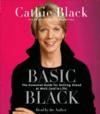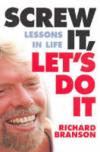Career choice guides
Earning a Crust
What is it really like to be an architect or a chimney sweep? Is working as a life
model sexy and glamorous or cold and boring? How does an embalmer cope with preserving
her own relatives? And do chartered accountants secretly have it sussed?
This book is a lot more entertaining than any careers book has a right to be.
Peter Cross uses interview techniques acquired as a broadsheet journalist to speak to
seventy five women about their work. It's ambitious scope is matched with powerful
personal accounts of unusual and challenging careers in entertainment, health, catering,
arts, traditional crafts, professions and trades.
This is not just an ideal gift for school leavers and recent graduates. Any woman fed
up with her daily grind will find solace and solutions here.
He is the author of the companion book, Jobs for the Boys: Men and their Work
Sample interview (originally published in the Independent on Sunday:
Nine to Five
Name: Kate Hudson
Age: 32
Job: Marketing Director
Salary: £36,000 plus dividends
Can you give me a run through your career to date?
"I left school at 18 with 11 'O' levels and three 'A's. I worked for a
company in the West End called Albany Life for 2½ years before moving onto a company
called General Portfolio, which was taken over by a French company, called Gan. I worked
in Sales Support and became part of a small team called the Strategic Initiative Group.
A year ago six of us, five men and me decided to set up our own training consultancy
providing training and business solutions for companies working in the financial sector.
We are coming to the end of our first year of trading and have turned over just under
half a million pounds"
Describe what you do?
"My official title is marketing director. My role includes basically
getting the company in front of prospective clients, producing press releases and
newsletters. I have written articles for the financial press. As a new company we have
commissioned extensive independent research from life assurance companies to understand
the current and future use and attitudes towards training consultancies. We produced a
report and have circulated it widely. Companies come to us for we provide different
solutions. A company may for instance be introducing new technology and need help. In
this case we would prepare a training proposal. It's not just a matter of training people
how to use a computer. Training is not just about knowledge, but skills, attitudes;
behaviours and the difficulties individuals may have with change. Techno Phobes for
instance. All this has to be taken into account ameliorated and evaluated. Some
companies may not have the training resources, which is also where we can help. At the
end of the day it's about delivering the right result for the client. It's a very
competitive business. Increasingly only those consultancies who adopt a proactive
approach, concerned with delivering value and quality, will be the ones who survive."
Where do you live?
"I live in Bedford with Alan my husband and our son Sam who is 6½. We
live in a large Victorian town house that had previously been two flats, and for the past
three years we have been re-decorating it ourselves. I'm very impulsive so Alan will
come home and find that I have changed something. As a new company we had to keep our
overheads down for the first year. As I was going to be responsible for the day to day
running of the company our office is currently at my house. On the top floor is the
office with computer and fax and next to it is a room, which is used as a sort of
'think tank'. At some stage we will to move the business out into other premises: it's
too easy just to slip upstairs and put in extra hours."
Describe your early morning?
"I get up at around seven. Either my husband will be leaving for work;
he works far more hours than I do, Sam may come into my bedroom and wake me up, or failing
that an alarm clock. I go and prepare breakfast and sort out things like Sam's sports bag
and check he's done his homework. Breakfast is normally what Sam has Shreddies or Coco
Pops. I'm not a health freak. I get him to school then its back here to start work."
What do you wear on a typical day?
"If I'm seeing clients I wear a suit, I still dress for work even if I'm
working from home but less formally. You have to create an impression: first impressions
are critical. I tend to wear black, pinstripes or navy."
Describe your journey to work?
"When I'm visiting clients I travel all over the place. Last week I flew
to Edinburgh and drove to Liverpool, Bournemouth and Croydon. I have a CD in the car and
play loud music, James Brown, Manic Street Preachers and George Michael. Some of my
colleagues listen to Radio Four but this is not for me."
Describe your work environment?
"When I'm meeting clients I usually see them at their premises which are
normally company headquarters. These vary enormously: I was at one recently that must
have cost millions consisting of a huge hexagonal building, which included trees and a
waterfall in the middle. Meetings are set up with training managers and much time will
be spent talking over their plans and needs. As a consultant you are often able to see
things in black and white but it's no good producing off the shelve solutions. Every
client and every project is unique, so you never have and preconceived ideas. Each company
takes a different approach to training so by talking to different people you can build up
a bank of ideas and good practices."
How long do you have for lunch?
"I don't have lunch when I'm at home, I might have a biscuit or
something. On the road I carry fruit in my bag and buy chocolates at a garage."
What are the most stressful aspects of your job?
"Going from being employed to taking the plunge, investing our own money
in our own company has been stressful but positively so. We could have continued in an
employed position with another company but the opportunity was too good to miss so we went
for it."
What are the main perks?
"Being in business with friends I have known and worked with for years,
and we are all equal shareholders. The present arrangements are good for family life, a
good balance when you're working from home."
Hours per week?
"About ten hours a day, but there have been times when we have been
working from nine in the morning till midnight or later including weekends to get
important work done. But weekends are fairly precious and I try to keep them free."
What about holidays?
"We agreed to give ourselves 25 days holiday a year but one of my
colleagues has only taken one day off. Last year we went to Minorca for a fortnight.
A proper beach holiday with Sam making sandcastles for the first week and we just crashed
out. Then in the second week we got a car and travelled around a bit. I'm no lover of
activity holidays. Just like to recharge the batteries."
What do you do after work?
"I'm studying for a marketing diploma but work commitments means that I
am not always able to get to the classes. I go to the gym about twice a week and I have
just bought a piano and am starting to get my fingers around the keys again. I took my
grades when I was at school. I play with Sam on his Nintendo."
What's the first thing you do when you get home?
"If I've been out I'll couch in front of the telly and watch the soaps.
I like Coronation Street but you can't put that in."
How do you feel on a Sunday night?
"I used to hate Sunday nights. Now I look forward to the new week, there's
always something different, and new challenges in the week ahead."
See also





